DREAM
Diversified orchards for REsilient and sustAinable
Mediterranean farming systems
Mediterranean farming systems
DREAM
Diversified orchards for REsilient and sustAinable
Mediterranean farming systems
Mediterranean farming systems
Previous
Next
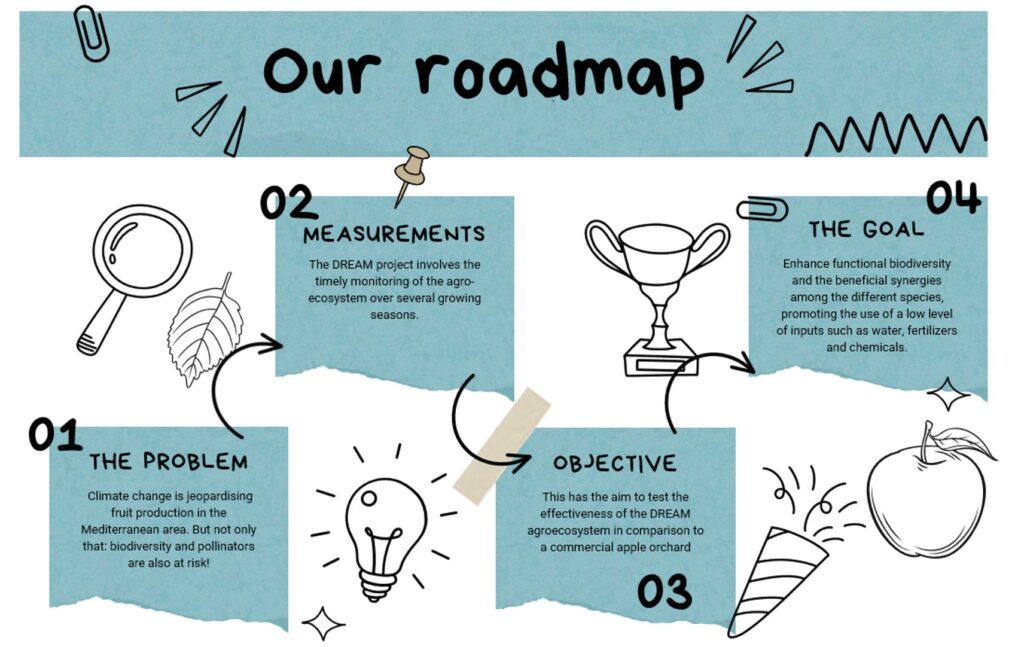
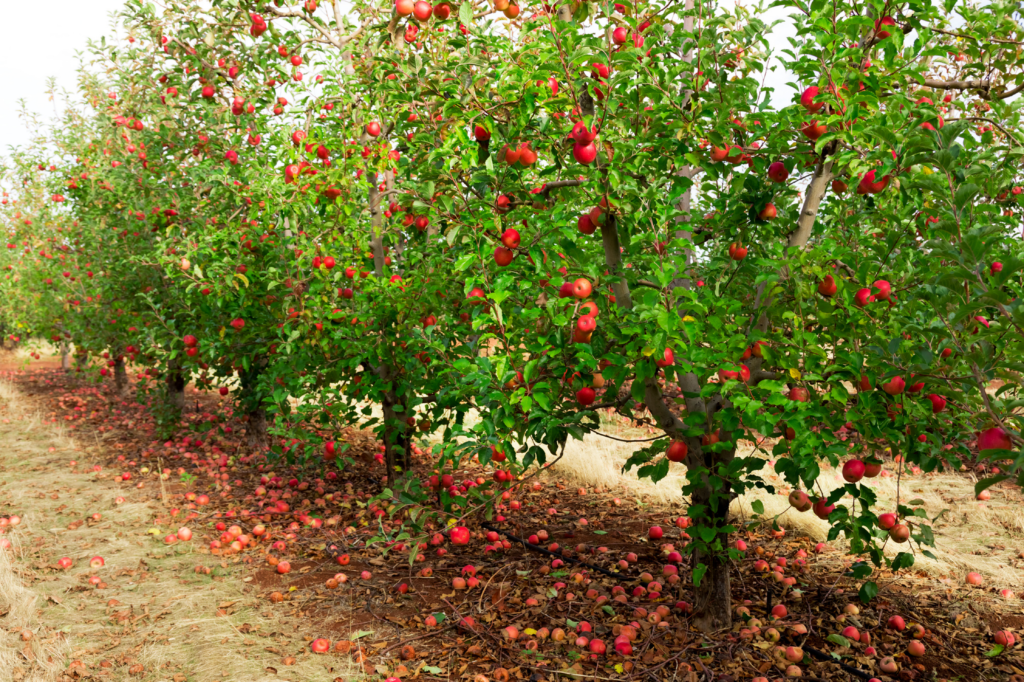
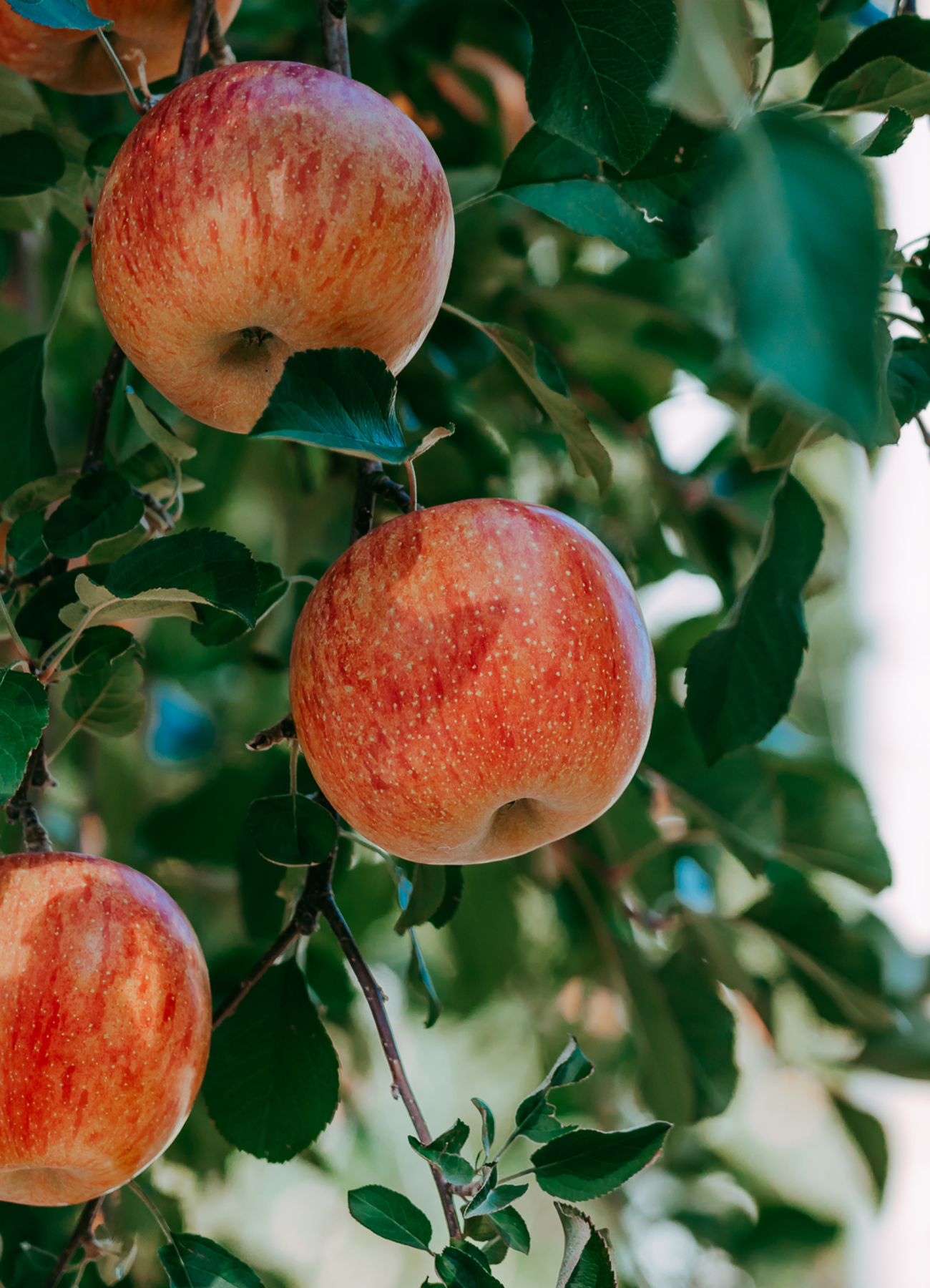
DREAM Project
DREAM aims at providing Mediterranean fruit growers with an alternative new cultivation approach for high quality and diversified fruit production with the specific objective to improve resilience to climate change, functional biodiversity as well as environmental and economic sustainability of small farming systems.
The DREAM ambition is to develop a new orchard model to provide Mediterranean small-holders growers, an alternative approach to increase the competitiveness and the sustainability of their productions.
DREAM agroecosystem
Modern orchards require high input, making them much more vulnerable to climate changes. Therefore, it is important to introduce new alternative approaches to improve the resilience of fruit farms to climate change related risks, while maintaining their economic, environmental and social values within the Mediterranean basin.
The DREAM agroecosystem responds to these challenges, developing a novel cultivation approach, adapting the small farming systems to climate change, increasing farmers’ incomes as well as their ecosystem services and biodiversity.
DREAM will represent a starting point to be adapted to other major Mediterranean fruit crops.
DREAM agroecosystem has been co-designed with the help of local living labs in three fruit producing areas: Italy and Morocco for apple and Spain for pear.

AGROECOSYSTEM CONCEPT
DREAM agroecosystem will be characterized by the following basic principles which go beyond conventional agricultural systems:
A multi-variety orchard
with different, scalar fruit varieties and exploiting a range of genetic resistances to biotic and abiotic stressors
Consociation with a cover crop mixture
able to prolong blooming, increase soil nutritional and water status, attract natural enemies and repelling phytophagous insects by attracting natural enemies
Adoption of Regulated Deficit Irrigation strategies
aimed at increasing the system water use efficiency, as well as improving fruit quality
Our latest posts. Don’t miss it.
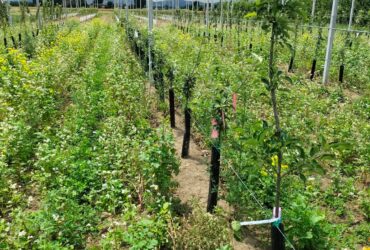
The first DREAM open-day in Bologna!
The first open day of the DREAM experimental orchard in Bologna was held on 21 May. During the morning, the data collected during the first year of the experimental trial...
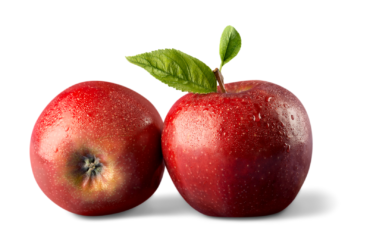
Which is your fruit consumption?
How, when and where do you consume fruit? These are the answers we are looking for! And YOUR CONTRIBUTION is fundamental to reach the goal. The aim of this...

Dream website is live!
We ‘re happy to announce that our website is live. Stay tuned to get all the information about the project.
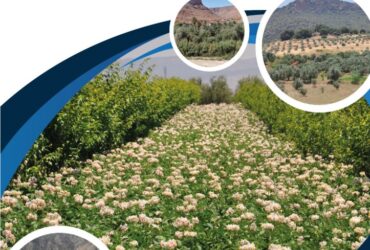
INRA Seminar on Agroforestry
INRA Seminar on Agroforestry (Meknes, Morocco) DREAM was in the spotlight at a conference held by INRA, which focused on Agroforestry. The conference included a lively presentation and an enlightening...


